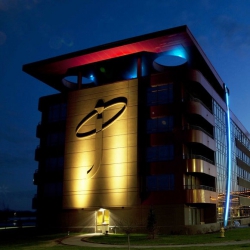
The bill would authorize 6 new gaming venues, which might cause financial difficulties for existing sites like Jumer’s Casino and Resort.
A bill in the Illinois General Assembly could place six new casinos in the state. The bill received approval in the Illinois Senate next week, so the bill would be on its way to the governor’s mansion if the General Assembly approves the proposal.
The Illinois casino bill is one of only a handful of successes in a week of negotiations over the 2017 budget plan. Like many states, the Illinois state treasury is seeking to close a spending gap without raising taxes or cutting services too much. Spending bills are a tight-rope act by lawmakers trying to avoid offending too many voters.
Adds to Illinois’ 10 Land-Based Casinos
At present, illinois has 10 profitable casinos, but adding six more would threaten the viability of all of them. Other regions of the country have added so many casinos that market saturation was reached. To avoid anything similar in Illinois, the legislature has cut the tax rate on all casinos. Of course, that means the state is going to see diminishing returns from the Illinois brick-and-mortar casino industry.
One study found that adding 6 more casinos, along with slot machines to horse tracks and airports, would only increase state tax revenues by only $87 million. The plan even taps the Chicago market for the first time, with such small results.
Where Would New Illinois Casinos Be Placed?
Under its current terms, the four casinos would be placed in Rockford, Danville, the unincorporated Williamson County, and Lake County. The remaining two casinos would be placed in the Chicago area, with one in Chicago proper and the other in the south suburbs of Chicago.
All six casinos would have an upfront licensing fee meant to pay down the state’s past-due bills. Thus, the main advantage of adding six casinos at once would be the licensing fees, must like the NHL used to add new franchises for the sake of the franchise fees.
Ongoing tax revenues would be placed in the Educated Assistance Fund. Additionally, Chicago casino revenues would go to the Policeman’s and Fireman’s Pension Funds. ‘
Opposition in the Illinois General Assembly
The chances of passage in the Illinois Senate remain questionable. In early January, the Senate stopped an ambitious budget proposal which would have added the six casinos, while increasing the state income tax. The bill also would have raised the minimum wage. At the time, key senators said they wanted to wait until the General Assembly members could vote.
That was during the lame duck session of the legislature, so lawmakers say people should not read too much into the losing vote for the budget plan. Speaker Michael Madigan and Governor Bruce Rauner were unable to reach a deal in December 2016, so the partisan divide could hurt the chances for the budget bill’s early passage.
Michael Madigan a Big Stumbling Block
Michael Madigan was reelected speaker for the 17th time, so the Democratic leader has been in these negotiations many times before. The Chicago Tribune, a bastion of conservatism for the better part of a century, called the Madigan Plan “more failure, more bleeding“.
Senate President John Cullerton, also a Democrat, appears to be playing the role of mediator. Cullerton said at the beginning of the session that he hoped a bipartisan budget package would provide “an example of how we can work this out”.
Senator Cullerton on a Reform Bill
Sen. Cullerton did not want to get into the semantics of whether the budget plan is a reform bill. More that that, he did not care to discuss tax increases. Cullerton portrayed the negotiations as business as usual, the lawmakers trying to put together a proper budget which would work for the state of Illinois, regardless of the proposals therein.
The head of the Senate said, “This was not a tax increase. This is a budget. This is a budget package with reforms that Sen. Radogno referred to. You can classify them as reforms. That’s fine. However you want to classify them, they’re important issues that we take up all the time and we’re addressing those, as well.”
2017 Illinois Budget Bill Provisions
The problem with passage of the current plan is it has so many moving parts, it is likely to have poison pills for many legislators. It involves legislation on workers’ comp, education funding, term limits, and a property tax freeze. One of the trickiest parts might be the term limits for legislative leaders in the Senate and the House, since that is directly aimed at limiting Michael Madigan’s power in the state.
Increasing the minimum wage is a popular measure that will make a down vote politically difficult. The wage increase would take the minimum wage $9 on July 1, then add periodic $0.50 increases until 2020, when the Illinois minimum wage would be $11-an-hour.
In all, the Senate Assigments Committee approved eight bills, incluing a spending bill, revenue proposals, minimum wage, a backpay effort, consolidation of local government, procurements reform, and the gaming measure.
The Senate Republican Leader, Christine Radogno, wanted to emphasize the nature of the reforms in the bill. Sen. Radogno said to the Chicago Sun Times, “One of the big takeaways from this is it’s the first time we’re acknowledging that we really do need to link the reforms, the revenue and the budget all together.“
